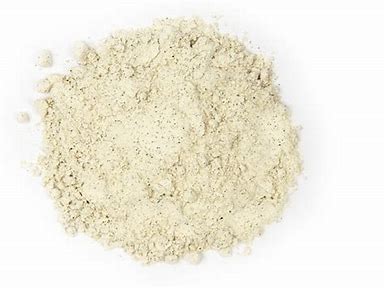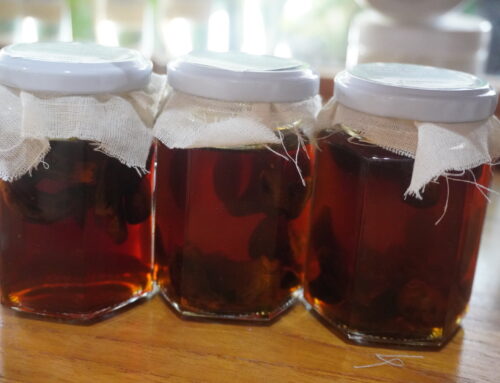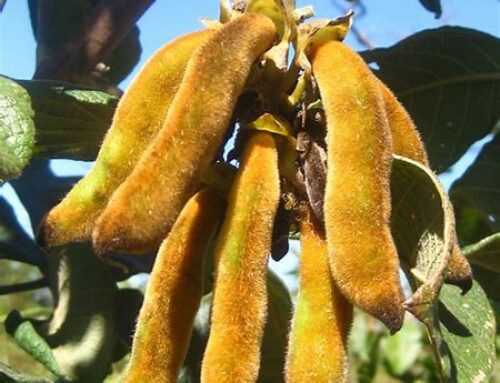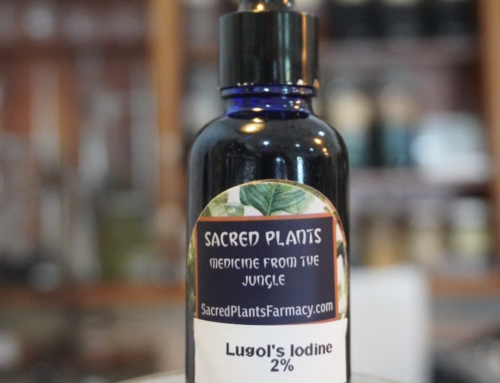Bacopa is used to treat memory and brain-related disorders for thousands of years — a plant thought to be so beneficial to the mind that it’s been a staple of traditional Ayurvedic medicine in India since seemingly forever? You’d be excited about its possible application, right? Then you’re in luck, because bacopa checks off both these boxes (and then some).
Also known as brahmi, bacopa is used to treat a broad range of mind-related health concerns, including Alzheimer’s disease, memory loss, anxiety, attention deficit-hyperactivity disorder (ADHD) symptoms, epilepsy and as a general tonic to fight stress. Best of all, it has far fewer severe side effects than the dangerous psychotropic drugs often prescribed today.
People also take the nootropic bacopa to help treat backache, joint pain and sexual performance problems in both men and women.
1. Adaptogenic Stress Reducer
It’s been estimated that up to 90 percent of all visits to primary care physicians are for stress-related complaints — 90 percent! Crazy, I know, but not hard to believe.
Stress, especially chronic stress, does terrible things to our minds and bodies, and general stress reduction should always be a top priority for anyone trying to live a healthy lifestyle.
Bacopa extract has actually been shown to work as a natural stress reliever by helping our bodies better handle or adapt to our daily stressors. An animal study conducted at the Central Drug Research Institute in India showed that a standardized extract of Bacopa monniera successfully guarded against acute and chronic stress.
More specifically, it reduced damaging stomach ulcer and adrenal activity. The study concluded that bacopa possesses a potent adaptogenic activity.
That’s why it’s sometimes described as a “calming cognitive enhancer.”
2. Anti-Anxiety and Antidepressant
It’s probably not too surprising that just as it reduces stress, this beneficial plant also potentially can reduce anxiety and depression symptoms.
Animal research published by the University of Michigan Health System showed the positive brain effects of bacopa, including reduction of both depression and anxiety. These very positive effects on the nervous system have biochemically been attributed to an enhancement of the effects of the neurotransmitters acetylcholine and, possibly, serotonin or GABA (gamma-aminobutyric acid).
Recent research on humans confirmed these effects, as did a 2021 analysis published in Science Reports.
3. Memory Improvement
A small, double-blind, 12-week study conducted at the Neuropsychology Laboratory at the School of Biophysical Science and Electrical Engineering in Australia had volunteers take 300 milligrams of bacopa daily while other volunteers received a placebo. Prior to the study commencing, researchers tested all volunteers on visual information processing, memory and speed of information processing.
The tests were repeated five and 12 weeks after the study began. A significant improvement among the volunteers in the bacopa group was found compared to those in the placebo group, leading researchers to conclude that it “may improve higher order cognitive processes that are critically dependent on the input of information from our environment such as learning and memory.”
More recent research has backed this up as well.
4. Alzheimer’s Disease and Dementia Treatment
Alzheimer’s disease is a brain disorder that progressively causes memory loss, dementia and early mortality. Natural Alzheimer’s treatment can include supplementation with bacopa.
According to the Alzheimer’s Drug Discovery Foundation, it might hold promise for preventing the dementia (decline in mental ability severe enough to affect daily life) associated with Alzheimer’s.
No high-quality human studies have been conducted, but the animal research affords great results so far. For example, several animal studies have found that bacopa improves cognition, reduces oxidative stress and may protect the brain from Alzheimer’s- and dementia-related symptoms.
While the bacosides that provide neuroprotective properties are thought to help with these cognitive diseases, experts caution that more reliable, better-conducted studies are needed to confirm the efficacy.
5. Epilepsy Treatment
Seizures occur in the body when your brain cells, which communicate through electrical signals, send out the wrong signals. Generally, several seizures are needed before there is a diagnosis of epilepsy.
While little human research has been done, there is a plethora of research in animals that suggests bacopa may be a natural epilepsy treatment. These research studies find that treatment with bacopa regulates gene expression, helps correct faulty reception of brain cells and helps increase GABA responses.
All of these results are a good sign that the cognitive impairment and seizure activity caused by epilepsy could potentially be relieved with bacopa.
6. Chronic Pain Minimizer
According to the Wall Street Journal, chronic pain is a huge health concern and health cost around the world today. Sadly, up to 85 percent of people with chronic pain also suffer from depression.
A review published in Current Medicinal Chemistry showed that Bacopa monnieri not only has strong antidepressant effects, but it has pain-reducing capabilities comparable to morphine. The study also indicated that this herbal treatment offers protective benefits for organs commonly affected by opiate toxicity, like the brain, kidneys and heart.
Researchers concluded, “Bacopa is may be a safe and well-tolerated herbal therapy for pain management in multiple clinical trials including various age groups.”
7. Blood Pressure Regulator
Animal studies have shown that bacopa might increase the body’s utilization of nitric oxide and encourage vascular muscle function, two benefits that positively influence normal blood pressure. The Journal of Ethnopharmacology study concludes that, according to research studies, some Bacopa monnieri ingredients could be effective at naturally lowering blood pressure.
8. ADHD Treatment
The bacosides in Bacopa monnieri are said to sharpen cognitive function by improving transmission of nerve impulses, which makes it promising for the treatment of ADHD. ADHD often begins in childhood and is a chronic condition that involves attention difficulty, hyperactivity and impulsiveness.
In a 12-week, double-blind, randomized clinical trial, children with ADHD who took 50 milligrams twice a day showed significant improvement over children receiving a placebo in tests of mental control, logical memory and paired associated learning. Evaluation of study subjects did not occur until four weeks after stopping bacopa usage, indicating that the supplementation had a lasting effect.
Another study published in 2022 conducted on boys aged 6–14 who exhibited inattention and hyperactivity revealed that “may have cognitive, mood and sleep benefits in children aged 6 to 14 years” though cautioned that “further study is required to support the findings presented here.”
Overall, it makes sense why it would be helpful for the symptoms of ADHD. Bacopa creates a sense of calm and peace, which is very helpful for the hyperactive and impulsive tendencies of those with ADHD. It also has a unique ability to invigorate mental processes while reducing the effects of stress and nervous anxiety, which is a perfect combination for an ADHD sufferer’s attention difficulties.
9. Potential Schizophrenia Treatment
Bacopa is one supplement in a long list of hopeful treatments to reduce symptoms of schizophrenia, although no human research has yet been completed. Animal studies show it may be able to protect against the cognitive impairments frequently seen in schizophrenia.
Risks, Side Effects and Interactions
Bacopa extract is well-tolerated when taken in recommend dosages by mouth for short durations of up to 12 weeks. Therapeutic doses are not associated with any serious side effects, but less serious side effects can include nausea, cramping, bloated stomach, diarrhea, dry mouth and/or fatigue, especially when taken on an empty stomach.
Bacopa can have a slight sedative effect so use caution when combining it with other known sedatives. It may also intensify the activity of thyroid-stimulating drugs or inhibit the effectiveness of thyroid-suppressant drugs.
Check with your doctor before taking bacopa if you have any medical conditions.
As a plant, bacopa is known to accumulate toxic metals like mercury so, depending on where the plant is grown, the levels of mercury or other toxins in its extract might be high. This is why we only use USDA certified organic Bacopa.
How to Use (Dosage)
Bacopa is available in 400 mg capsules
Recommended daily dosages are: 400 to 800 milligrams. Best in divided doses for adults and 100–200 milligrams daily in divided doses for children.
The statements made within this website have not been evaluated by the Food and Drug Administration. These statements and the products of this company are not intended to diagnose, treat, cure or prevent any disease.






